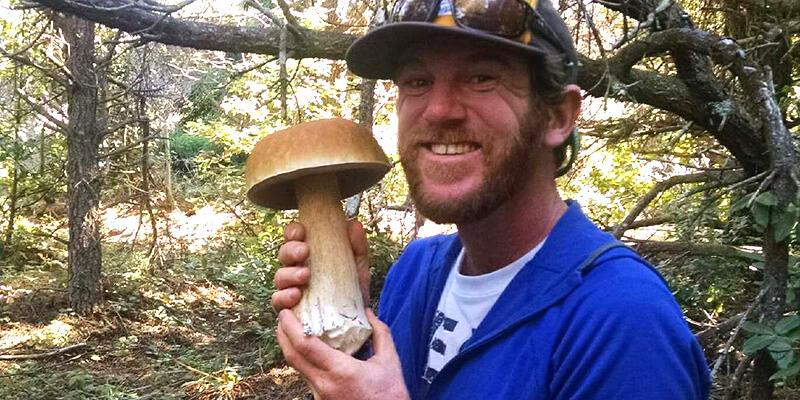This fall, Brendan O’Brien, MS student in UVM’s Rubenstein School of Environment and Natural Resources, began a three-semester internship supported by a $15,000 award from Casella Resource Solutions to conduct his research on soil amendment products produced through organics recycling strategies. His work is well-timed with new Vermont requirements for residents and businesses to separate food scraps and other common waste materials (e.g. “blue bin” recyclables and leaf and yard debris) from landfilled trash.
The passage of Vermont’s Act 148, the Universal Recycling and Composting Law, calls for diverting all food scraps from landfills by July 2020. Instead, diverted food waste can be collected and processed through commercial composting and anaerobic digestion, resulting in soil amendment products. O’Brien says, “Composting turns food scraps into nutrient rich soil amendments while anaerobic digestion yields biogas and residues that can also be used as a soil fertilizer.”
O’Brien earned a Bachelor of Science degree from The Evergreen State College in Washington State in 2008, where he focused on environmental analysis and water quality. A native Vermonter, O’Brien has worked as a climate change analyst in Alaska and a desert tortoise biologist in the Mojave Desert.
Currently working under the direction of primary advisor Dr. Eric Roy (Rubenstein School assistant professor in nutrient cycling & ecological design) and thesis committee members, Dr. Deborah Neher (UVM professor in soil ecology) and Dr. Carol Adair (Rubenstein School assistant professor in terrestrial biogeochemistry), O’Brien will study the comparative nutrient content of different soil amendment products and how their additions to soil influence soil microbial communities and nutrient cycling. “Understanding these dynamics has important implications for agricultural productivity, soil health, and water quality,” he says.
O’Brien is the first recipient of the Casella Internship, which provides tuition remission and a research assistantship position for selected Rubenstein School students researching practical resource management solutions related to the solid waste and resource recovery industry. O’Brien’s research was a natural fit for Casella, a Rutland, Vermont-based waste management company, which provides food scrap collection services and supports food waste processing.
Casella’s commitment to corporate citizenship through charitable giving to educational initiatives focused on environmental best practices has led to a longstanding partnership with the Rubenstein School and other units across the University of Vermont campus.
"Supporting advanced, yet highly practical, research such as this is a crucial component not only in strengthening our knowledge of organics resource management, but also in bringing real, sustainable solutions to our customers,” says Casella Senior Vice President Paul Ligon, a 1990 UVM graduate in environmental studies who co-founded VSTEP, UVM’s Vermont Student Environmental Program in 1988. “We value the opportunity to innovate in this way through the strong partnerships that we enjoy with world class universities like UVM, and the talented students, faculty, and staff that they attract.”
2016 marks the company’s tenth year of supporting scholarships for Rubenstein School students interested in pursuing careers in the environment. In addition to O’Brien’s graduate internship, Casella also provides $5,000 each year to support undergraduate participation in Rubenstein travel courses. During the Spring 2016 semester, undergraduate students, Levi Brown, Laura Taveras, Lucyann Labadie, and Olivia Malone received awards from Casella to participate in national and international travel courses.
